Electrical Engineering
- 4 Year Course
- Intake: 30
Why B.Tech Electrical Engineering Course at MIET
At MIET, the Electrical Engineering program blends strong theoretical foundations with hands-on learning. Students benefit from cutting-edge labs, industry-aligned curriculum, and experienced faculty guiding them in areas like power systems, renewable energy, electric vehicles, and smart grids. Regular industry interactions, internships, and live projects ensure students are future-ready. With a focus on innovation, research, and entrepreneurship, MIET empowers students to become problem-solvers and leaders in the evolving energy landscape.
20 Core Engineering Courses
Covering essential and advanced areas in Electrical Engineering such as Circuit Theory, Electrical Machines, Power Systems, Control Systems, Power Electronics, Measurements and Instrumentation, and Electric Drives. These core subjects build strong analytical and technical foundations.4 Industry-Integrated Labs/Project-Based Courses
Designed to bridge theory with practice, these include hands-on labs in Power Systems, Electrical Machines, and Electronics, along with a Minor Project and a two-phase Major Project. Emphasis is placed on simulation tools, hardware interfacing, and real-world problem-solving.6 Elective Courses
Offered in senior semesters, electives allow students to pursue advanced topics like Electric Vehicle Technology, Renewable Energy Systems, Smart Grid Technologies, Embedded Systems, or Industrial Automation, aligning with current industry trends and innovations.
Mandatory Industry Internship:
Students undergo a minimum of 6 to 8 weeks of industry internship, typically during the summer after the 4th or 6th semester, providing practical exposure to power plants, manufacturing units, electrical utilities, or automation firms.Field Training:
Hands-on learning is emphasized through industrial visits, lab-based simulations, and training in tools like MATLAB, Simulink, PSCAD, AutoCAD Electrical, and PLC/SCADA systems—bridging academic concepts with real-world applications.Industry Tie-ups:
Collaborations with leading companies in power generation, renewable energy, electric vehicles, automation, and smart grid technology offer students opportunities to work on live projects and intern with reputed industry partners.
Click here to view
- 50% marks and above in 12th Class.
- Any State or National Level Entrance Exam (CUET) or MET (MIET Entrance Test)
Specializations
he Electrical Engineering program at MIET Jammu offers students the opportunity to specialize in a range of dynamic and future-oriented domains, carefully designed to build strong technical acumen, practical proficiency, and innovative problem-solving skills. These specializations are aligned with current industry demands and emerging technologies, empowering students with a deep understanding of both traditional electrical engineering foundations and cutting-edge advancements in the field.
Tech-Integrated Specializations
Apply intelligent systems for predictive analysis, structural health monitoring, and smart infrastructure
Integrate sensors and smart devices in infrastructure to enable real-time monitoring and automation.
Harness data-driven insights for project planning, risk analysis, and resource optimization in civil projects
Manage and secure engineering data and operations using cloud platforms and digital security frameworks.
Program Outcomes & Objectives
- Successfully apply fundamental knowledge of electrical engineering in an innovative manner to solve real-world challenges in emerging domains.
- Build successful careers in diverse domains and take on higher responsibilities in industry, academics and entrepreneurship to create significant value for all stakeholders.
- Demonstrate professional growth and development in their chosen field or program towards an advanced degree and to achieve their specific career goals.
- Build reputation for excellence, leadership and ethics.
- Engineering Knowledge: Apply the knowledge of mathematics, science, engineering fundamentals, and an engineering specialization to the solution of complex engineering problems.
- Problem Analysis: Identify, formulate, review research literature, and analyze complex engineering problems reaching substantiated conclusions using first principles of mathematics, natural sciences, and engineering sciences.
- Design/development of solutions: Design solutions for complex engineering problems and design system components or processes that meet the specified needs with appropriate consideration for the public health and safety, and the cultural, societal, and environmental considerations.
- Conduct investigations of complex problems: Use research-based knowledge and research methods including design of experiments, analysis and interpretation of data, and synthesis of the information to provide valid conclusions.
- Modern tool usage: Create, select, and apply appropriate techniques, resources, and modern engineering and IT tools including prediction and modeling to complex engineering activities with an understanding of the limitations.
- The engineer and society: Apply reasoning informed by the contextual knowledge to assess societal, health, safety, legal and cultural issues and the consequent responsibilities relevant to the professional engineering practice.
- Environment and sustainability: Understand the impact of the professional engineering solutions in societal and environmental contexts, and demonstrate the knowledge of, and need for sustainable development.
- Ethics: Apply ethical principles and commit to professional ethics and responsibilities and norms of the engineering practice.
- Individual and team work: Function effectively as an individual, and as a member or leader in diverse teams, and in multidisciplinary settings.
- Communication: Communicate effectively on complex engineering activities with the engineering.
- Project management and finance: Demonstrate knowledge and understanding of the engineering and management principles and apply these to one’s own work, as a member and leader in a team, to manage projects and in multidisciplinary environments.
- Life-long learning: Recognize the need for, and have the preparation and ability to engage in independent and life-long learning in the broadest context of technological change.
- Demonstrate the fundamental knowledge in electrical circuits, power systems, power electronics, electrical and electronics measurement, electrical machine, control system and to understand the need for renewable energy systems for developing clean energy and their applications in industry.
- Demonstrate competence in analyzing, designing and implementing industry-relevant electrical systems and provide solutions for real-world problems in a multi-disciplinary environment.
Do you have more questions?
Key Features
Mitsubishi Authorised Training Centre
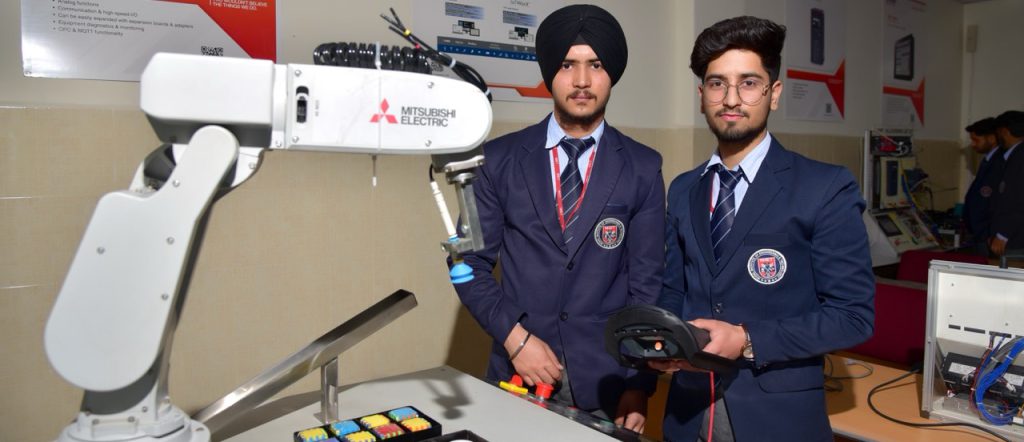
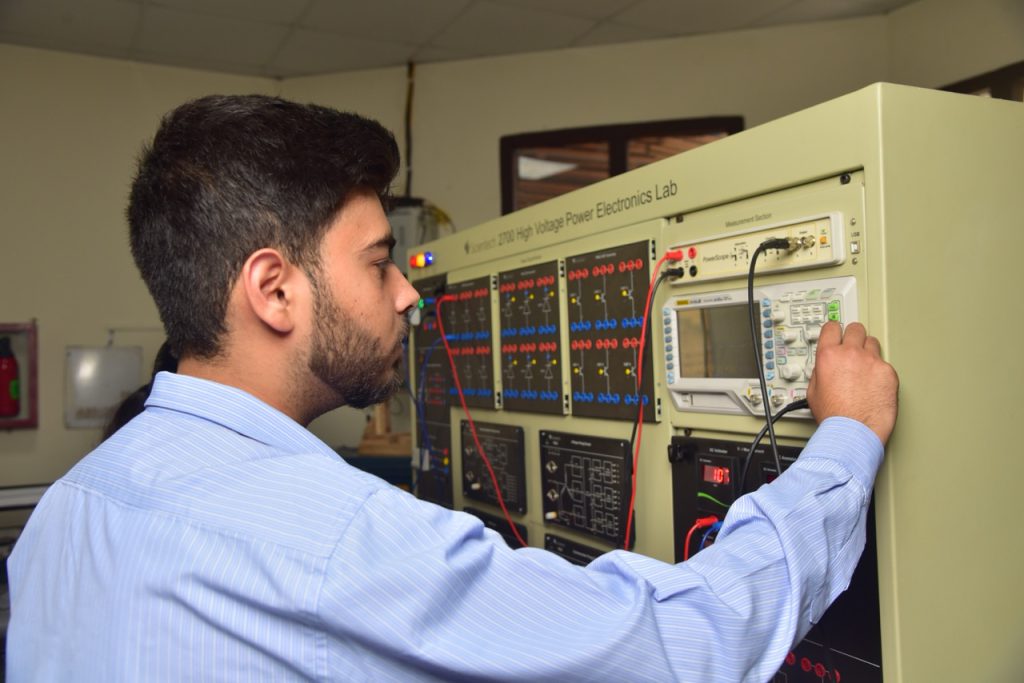
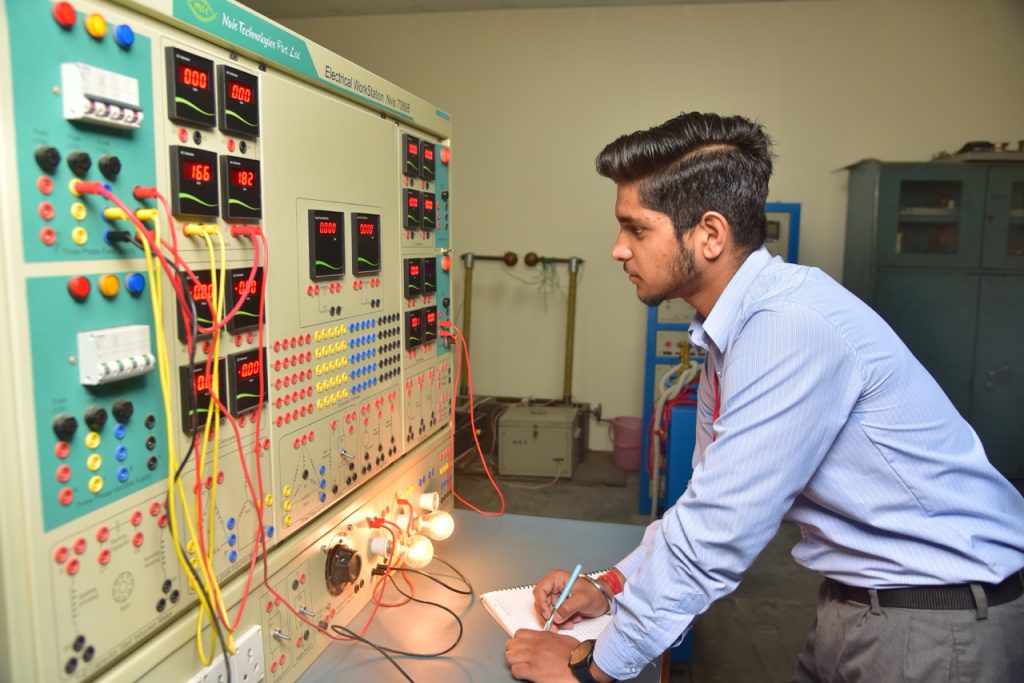
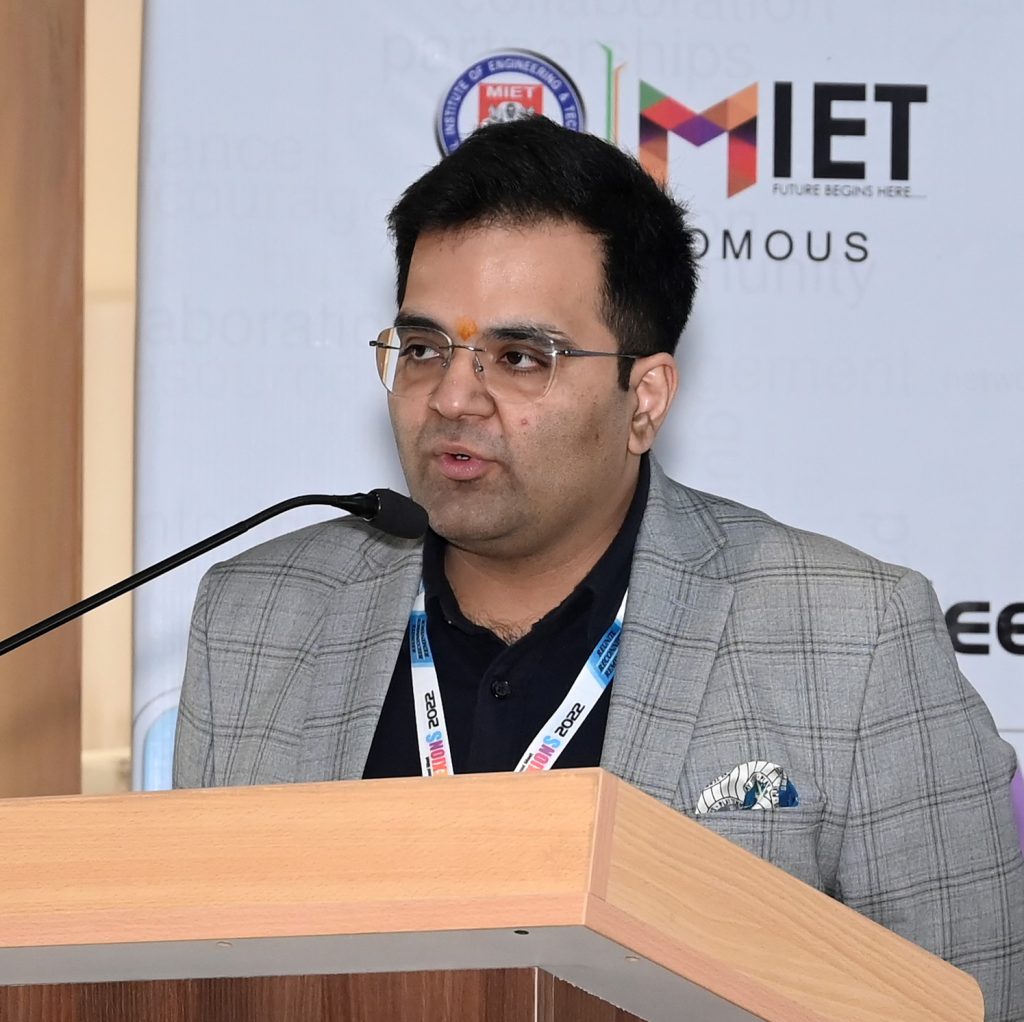
Manik Batra
Managing Director, Batra Group
Chairman ASSOCHAM, J&K UT.
(Batch 2000-2004, EE)
News & Events
Alumni in Spotlight – Mr. Vaneet Gupta
Meet Mr. Vaneet Gupta, an esteemed MIET alumnus from the CSE Batch of 2000-2004, currently thriving as the Head of Business Systems
Building Financial Wisdom: Stock Portfolio & Investment Strategies
MIET, in collaboration with the Institution’s Innovation Council (IIC), organized an engaging session on stock portfolio building and investment strategies with Mr.
Industrial Visit to Rail Coach Factory, Kapurthala
MBA students from the School of Management, MIET, visited the Rail Coach Factory, Kapurthala, a leading manufacturing unit under Indian Railways. This
How to Apply?
- You Apply
Tell us a little about yourself and we’ll help with the rest. Our convenient online application tool only takes 10 minutes to complete.
- We Connect
After you submit your application, an admissions representative will contact you and will help you to complete the process.
- You Get Ready
Once you’ve completed your application and connected with an admissions representative, you’re ready to create your schedule.
